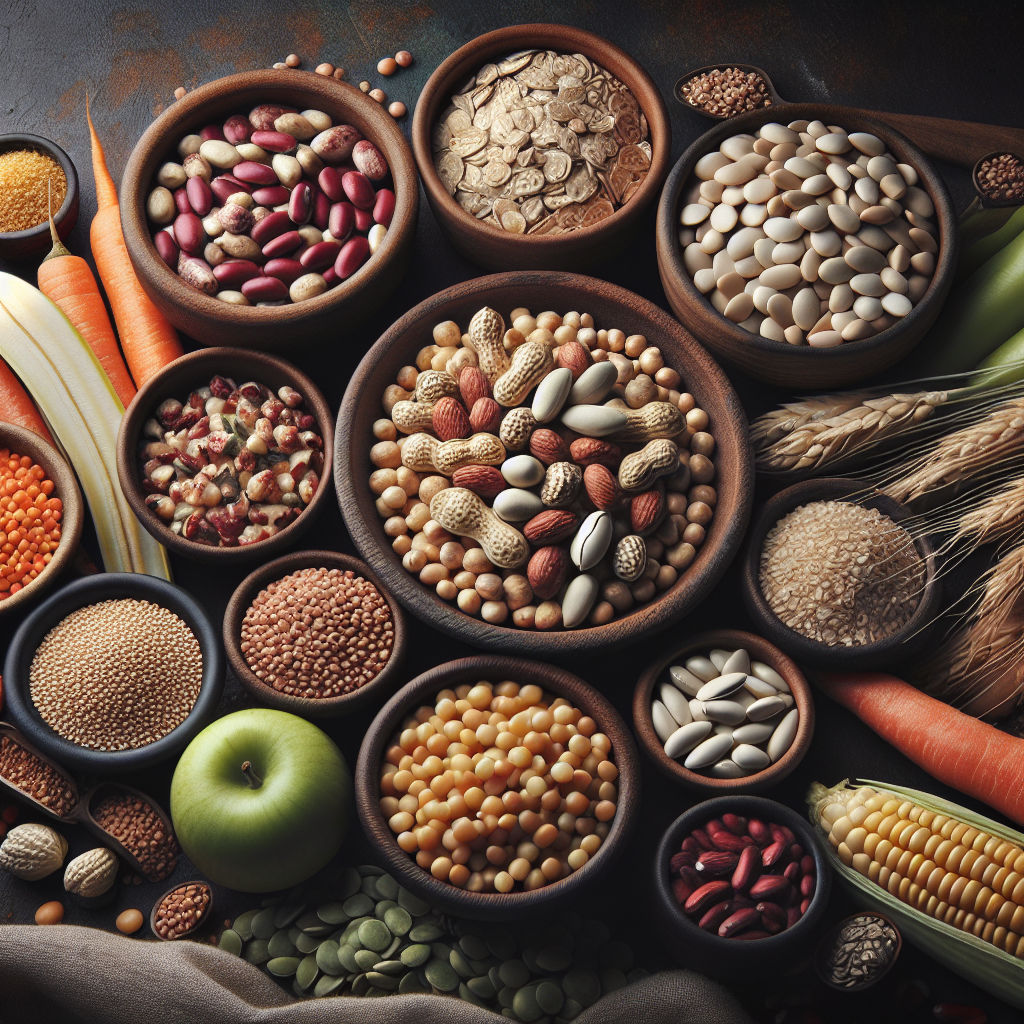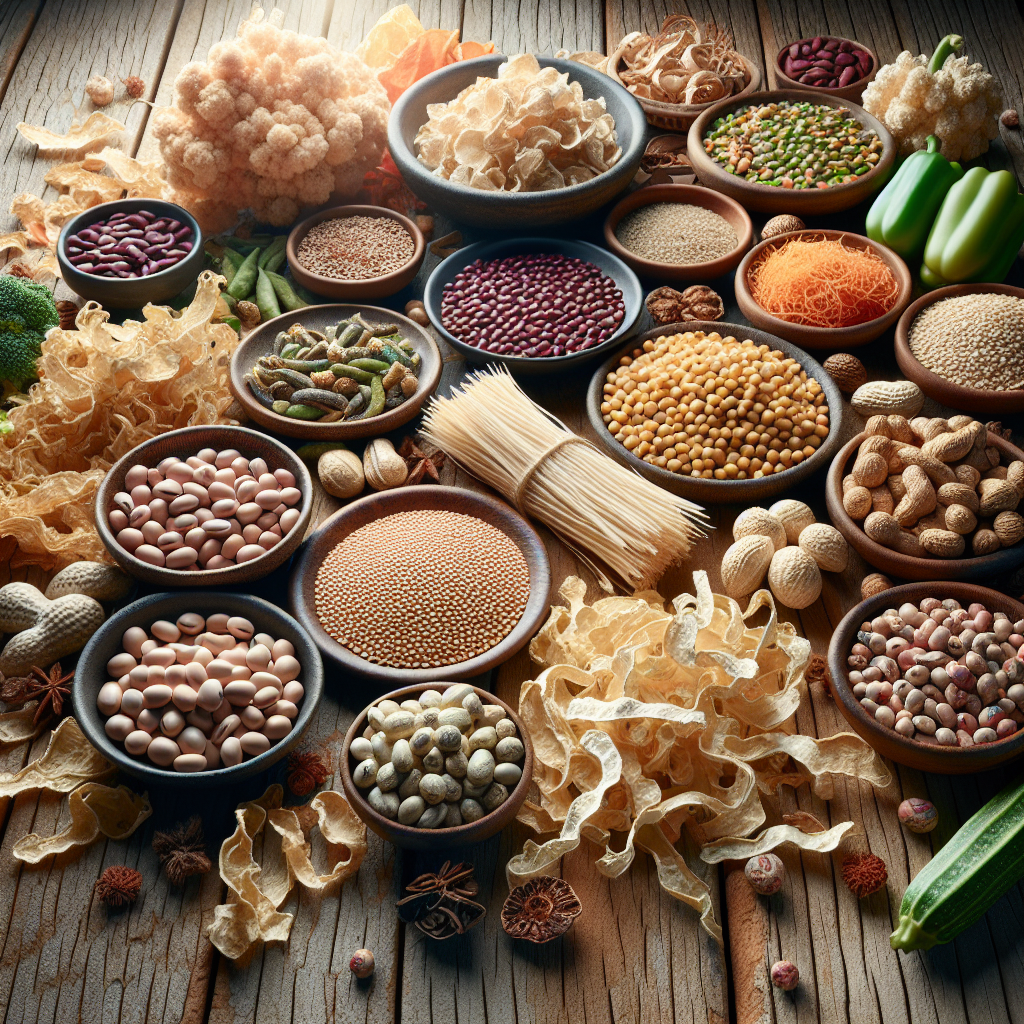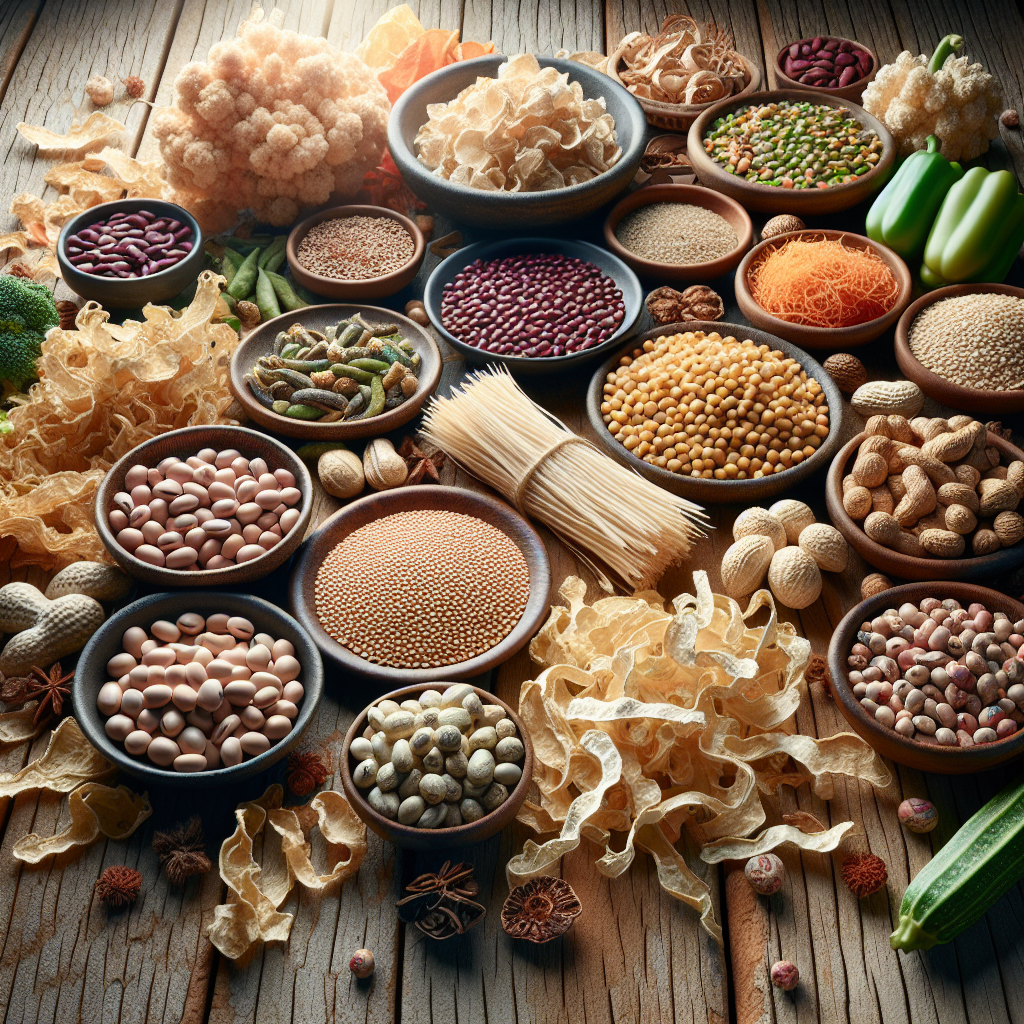Navigating the dietary landscape can often feel like a tightrope walk between restrictions and preferences. If you’re a vegetarian or a vegan wondering if you can adopt a lectin-free diet, you might feel like you’re setting out on unchartered waters. This article intends to clarify the compatibility between a lectin-free regimen and a vegetarian or vegan lifestyle by considering both your health and ethical reasons.

Benefits of a Lectin-Free Diet
While it may not be a mainstream dietary approach, sticking to a lectin-free diet can offer several remarkable health benefits. You may wonder, “What is a lectin-free diet?” Simply put, it’s a way of eating that involves avoiding lectins—certain proteins found in numerous food items, which can pose health risks in large amounts.
Improved Gut Health
A significant advantage of a lectin-free diet is its potential to improve gut health. When you consume an excess of lectins, they tend to bind to the cells lining your gut, causing damage in the process. As you cut down on the intake of lectin-rich foods, you allow your gut to heal. This results in improved digestive health and generally contributes towards improved overall health.
Reduced Inflammation
One of the primary properties of lectins is their potential to exacerbate inflammation in the body. By adopting a lectin-free diet, you essentially curb the ingestion of these inflammation-causing proteins, thereby helping your body keep unnecessary inflammation at bay.
Weight Management
A lectin-free diet could also be your ally when it comes to weight management. Since lectins interfere with the absorption of nutrients in your body, they can leave you feeling less satiated, causing overeating and weight gain. Eliminating these from your diet can help regulate your hunger cues accurately, reducing the risk of weight gain.
Understanding Lectins
Before we delve into the specifics, let’s first understand what lectins really are.
What are Lectins?
Lectins are a type of protein found in a variety of food items—especially in legumes and whole grains—and there are several different types. They have the ability to bind to cells and might cause harmful effects when consumed in excessive amounts.
Sources of Lectins
If lectins are on your watch list, you’ll want to be extra aware of the foods you choose. High sources of lectins include red kidney beans, soybeans, wheat, and peanuts. Of course, these foods also provide other important nutrients, so it’s crucial to balance your choice.
Effects of Lectins on the Body
While everyone’s physiological reaction to lectins can vary, high intake levels can have several negative effects. These include issues related to gut health such as loss of gut barrier function, inflammation, and damage to the gut lining. They can also interfere with nutrient absorption.
Vegetarian and Vegan Diets
Shall we explore the vegetarian and vegan diet next?
Overview of Vegetarian Diet
A vegetarian diet typically excludes meat, poultry, and seafood. However, it may include other animal products such as dairy and eggs. It’s a diet rich in fruits, vegetables, grains, legumes, nuts, and seeds.
Overview of Vegan Diet
A vegan diet goes a step further than the vegetarian diet by excluding all animal products, including dairy, eggs, and honey. Everything consumed is derived from plants, making legumes, whole grains, fruits, vegetables, nuts, and seeds staple components of a vegan diet.
Health Benefits of Vegetarian and Vegan Diets
Both vegetarian and vegan diets are renowned for their plethora of health benefits. They offer a multitude of essential nutrients, are high in dietary fiber, and are relatively low in saturated fat. These qualities contribute to reduced risks of chronic diseases such as heart disease, diabetes, and certain cancers.
Challenges of a Lectin-Free Vegetarian or Vegan Diet
A lectin-free diet can pose a challenge, especially for vegetarians and vegans. Here’s why.
High Reliance on Plant-Based Protein Sources
Both vegetarian and vegan diets rely heavily on plant-based protein sources, many of which are rich in lectin content. For example, legumes—such as lentils, chickpeas, and kidney beans—are excellent sources of protein for vegetarians and vegans, but they’re also high in lectins.
Lack of Variety in Food Choices
Eliminating lectin-rich foods from a vegetarian or vegan diet could significantly restrict the variety in food options. It might lead to repetitive meals, resulting in disinterest and dissatisfaction.
Sufficient Nutrient Intake
Maintaining an optimal balance of nutrients becomes especially tricky in a lectin-free vegetarian or vegan diet. This is mainly due to the elimination of key food groups that contribute towards nutrient diversity.

Alternatives to Lectin-Rich Foods
Making selective food substitutions can help you enjoy a balanced, lectin-free vegan or vegetarian diet.
Protein-Rich Alternatives for Vegetarians and Vegans
As a vegetarian or vegan looking to reduce lectins, you can opt for protein alternatives like tempeh, natto, and certain seeds such as hemp and chia seeds.
Low-Lectin Fruits and Vegetables
Focusing more on low-lectin fruits and vegetables is a smart move. Look for foods like asparagus, garlic, celery, mushrooms, onions, and berries.
Healthy Fat Sources
Healthy fats are essential in any diet, including a lectin-free one. Avocados, olives, and a variety of nuts and seeds are excellent, healthy, low-lectin fat sources.
Planning a Lectin-Free Vegetarian or Vegan Diet
So, how can you successfully plan a lectin-free vegetarian or vegan diet?
Consulting a Healthcare Professional or Dietitian
Scheduling a consultation with a healthcare professional or dietitian can be helpful. They can assess your nutritional needs, guide you with food choices, and help you devise a diet plan keeping your health needs in mind.
Creating a Balanced Meal Plan
To make your diet lectin-free, yet all-encompassing of your nutritional needs, creating a meal plan is vital. It should center on nutrient-rich foods with rudimentary lectin content.
Supplementing with Necessary Nutrients
Supplementing your diet with necessary nutrients, like vitamin B12, iron, and Omega-3, ensures that despite the trimming of lectin sources, you’re not running low on these necessary nutrients.
Protein Sources in a Lectin-Free Diet
Finding the right protein sources that also abide by your lectin-free rule can be a conundrum.
Legume Alternatives for Vegetarians and Vegans
As legumes are high in lectins and form the base protein source for vegetarians and vegans, finding alternatives is critical. Fermented legumes, like tempeh and natto, significantly decrease their lectin content and can be favorable options.
Quinoa and Amaranth as Protein Sources
Quinoa and amaranth, both being pseudo-grains, pack a solid proteiny punch and contain fewer lectins as compared to other grains—making them excellent choices for your protein supply.
Nuts, Seeds, and Soy Products
Nuts, seeds, and properly prepared soy products, although they contain some lectins, can also be included in your diet in moderation as they are rich in protein.
Plant-Based Fat Sources in a Lectin-Free Diet
Here are a few plant-based fat sources you can include in your lectin-free diet.
Avocado and Olives
Both being low in lectin, yet high in healthy fats, avocados and olives can be included in a lectin-free diet.
Coconut and Coconut Oil
Coconut and its oil are an excellent source of healthy fats for those on a lectin-free diet, contributing to overall satiety and helping manage weight.
Nuts and Seeds
Various nuts and seeds like almonds, macadamia nuts, and flax seeds are loaded with healthy fats, have a low lectin count, and can be incorporated in the diet regimen.
Essential Nutrients in a Lectin-Free Vegetarian or Vegan Diet
Doing without several high-lectin foods might leave you short on some key nutrients.
Iron and Zinc
Supplementing your diet with iron and zinc can assist in keeping up with the nutritional needs, as the major plant-based sources for these nutrients have high lectin content.
Calcium and Vitamin D
Plant-based calcium sources are typically high in lectins, so it’s vital to include low-lectin alternatives such as broccoli and kale or supplements. Ensure you get enough sunshine for Vitamin D and consider supplementation when necessary.
Omega-3 Fatty Acids
Since fatty fish and seafood—a rich source of Omega-3 fatty acids—are off the table for vegetarians and vegans, it’s important to include other sources. Walnuts, flaxseed, and hemp seeds are excellent alternatives.
Conclusion
Embarking on a lectin-free vegetarian or vegan diet can surely be a challenge, but it’s not an impossible feat. By making the right food choices and planning correctly, you can make the transition smoothly. Remember to consult a healthcare professional or dietician to ensure a balanced and nutrient-rich diet. The journey might require a little more effort, but the potential health benefits can make it worthwhile.
